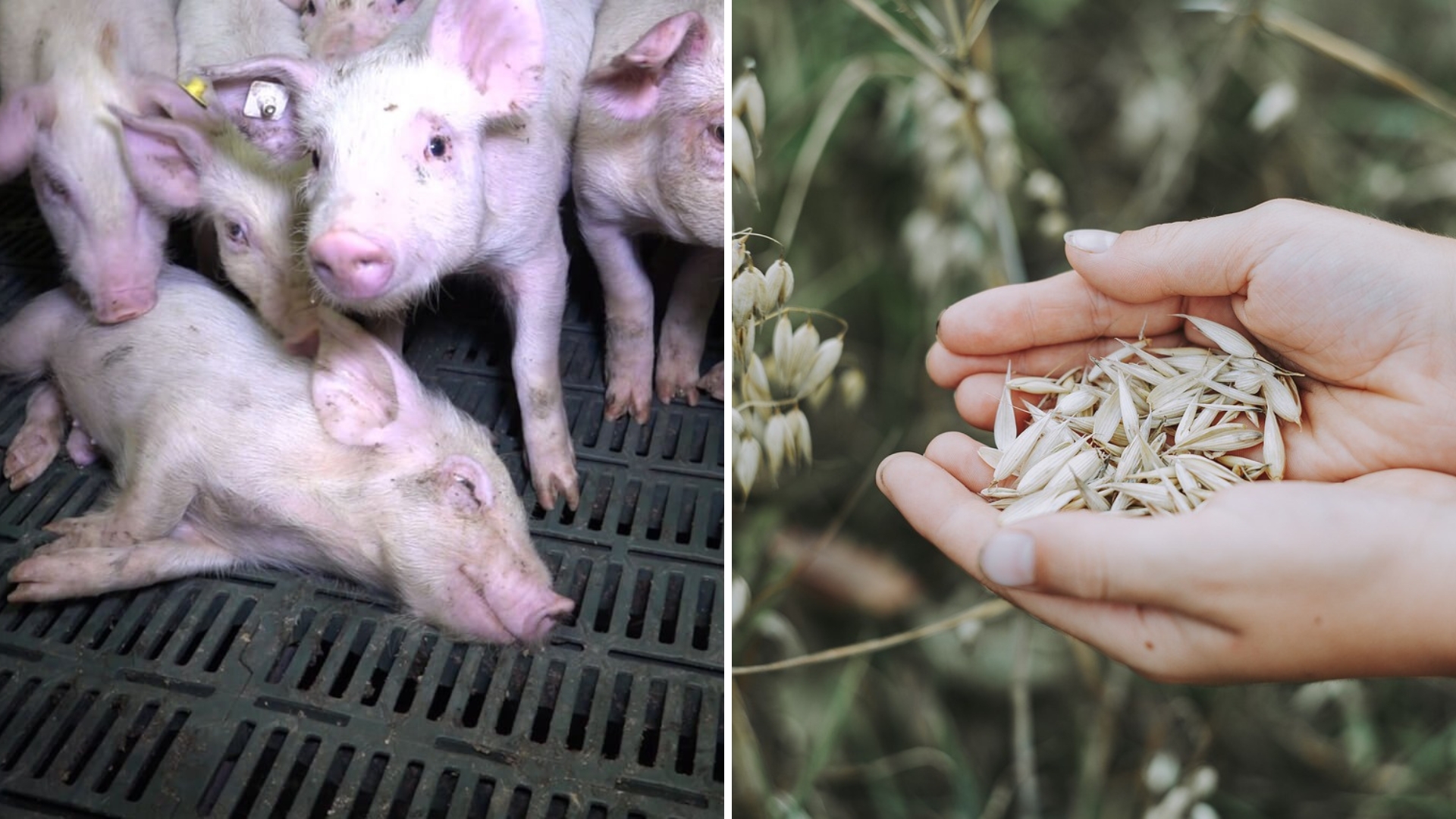UN INT Intro Text w/ Responsive Image - *Important Note* You must UNLINK this shared library component before making page-specific customizations.
Everyone needs farmers, but farmers don’t need to keep animals for meat, eggs, or dairy.
Raising and killing animals for food is destroying the climate, damaging the environment, and causing immense suffering to chickens, cows, pigs, and other sensitive animals. The government subsidies that prop up animal farming must stop.
Please urge officials in England, Scotland, Wales, and Northern Ireland to support ethical and sustainable plant-based farming.

Animals Suffer on UK Farms
Animals on farms are treated as commodities, not as thinking, feeling beings. In the dairy industry, female cows are forcibly impregnated and their calves are taken away so humans can steal the milk that was meant for them. In the meat industry, piglets’ tails are cut off without any painkillers, and male chicks are ground up alive for the egg industry.
Many British farms claim to have “high welfare standards”, yet investigations reveal time and again that humane-washing labels such as “free range”, “high welfare”, or “grass-fed” are meaningless. The only label that assures a product is cruelty-free is one that reads “vegan”.
Farmers Need Support
PETA encourages all farmers to grow plants and leave behind the heartbreak and violence involved in raising animals for food. According to a 2022 Stockfree Farming survey, 80% of Scottish farmers were receptive to moving away from farming animals to meet changing consumer diets – but they can’t take this step without financial support.
A Drain on Our Economy
Financial institutions invested a staggering £380 billion in meat and dairy corporations between 2015 and 2020 – yet less than £4.7 billion (1.24%) was invested in plant-based foods between 2010 and 2020.
Breeding, confining, and killing animals to eat their flesh, milk, and eggs is a failing model – the household consumption of animal-derived foods in the UK has never been lower. Yet it is propped up by taxpayer money. According to the Department for Environment, Food, & Rural Affairs, around 90% of the annual profit of farmers who exploit sheep, cows, or other grazing animals comes from subsidies, whereas this is just 10% of fruit farmers’ profits.
Destroying the Planet
The United Nations warns that animal agriculture subsidies are fuelling the climate catastrophe. Raising animals for food is responsible for high emissions of greenhouse gases methane and nitrous oxide in the UK. Our government is supporting a leading cause of planetary destruction.
Animal farming causes other negative impacts, such as biodiversity loss, the spread of devastating infectious diseases like avian influenza, and air and water pollution. Animal farms in England polluted rivers 300 times in 2021 alone. With more than 20 million chickens imprisoned in its catchment area, the River Wye has been dubbed “pea soup” due to its high level of pollution.
Despite the clear environmental damage and extensive suffering involved, the number of intensive animal farms in the UK continues to grow, and over 1 billion land animals are killed every year in UK abattoirs. None go to their deaths willingly.
An Ineffective Way to Feed Our Nation
The National Food Strategy highlighted that 85% of total agricultural land in the UK is used to grow crops to feed farmed animals instead of food for humans.
The vast majority of the corn, oats, and soya we grow are fed to animals on farms. It takes about 25 calories of grain to produce one calorie of meat. This is an incredibly inefficient way of feeding the nation and wastes time, money, and resources.
Take Action: Support Plant Farmers
The government must do more to support those who are leaving behind the meat, egg, and dairy industries in favour of ethical and sustainable farming. We need farmers to provide the oats, grains, beans, nuts, vegetables, and fruit that we eat – and stop the slaughter.
Please send a message urging your government to cut subsidies for farms with animals and support plant-based farmers instead: